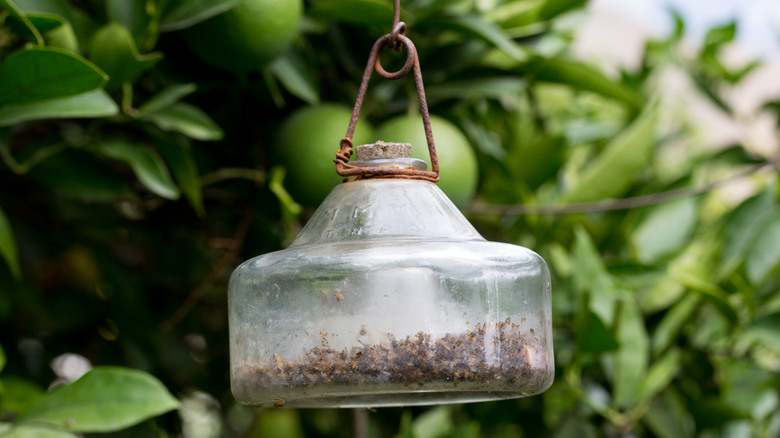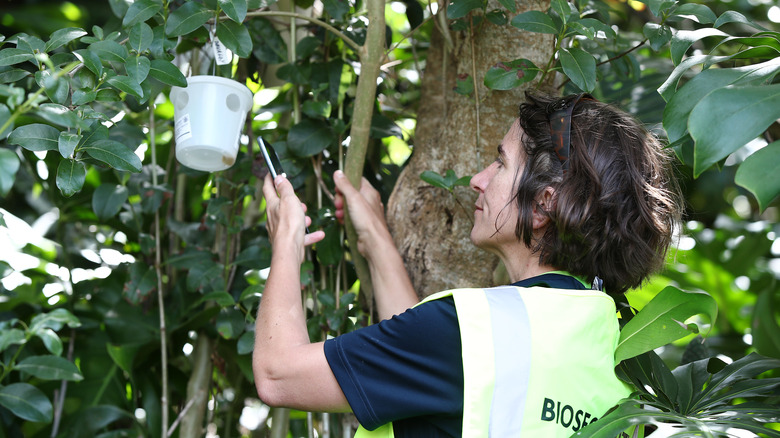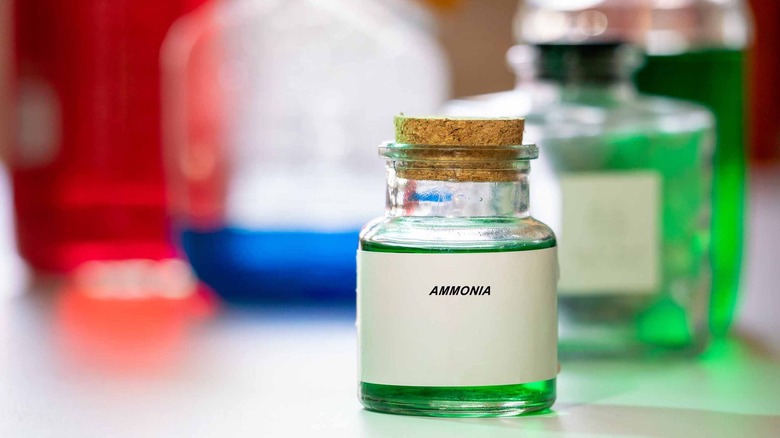Protect Your Garden From Mediterranean Fruit Flies With This Easy DIY Trap
When Mediterranean fruit flies invade your garden, they bring a world of trouble with them. These tiny pests are notorious for targeting ripening fruits and laying eggs that hatch into destructive larvae. This infestation not only ruins the fruit but can lead to further plant damage and decreased yields. Fortunately, you can combat these invaders effectively with a simple, homemade trap. This method harnesses the flies' need for protein, crucial for egg production, effectively attracting and eliminating them from your garden. Also known as "lure and kill," this targeted method draws mainly female flies, significantly reducing larvae numbers and thereby protecting your fruit trees. It's also advantageous to the environment since it focuses specifically on the pest you want to control, minimizing unintended impacts on other beneficial insects and the broader ecosystem of your garden.
But before creating the trap, it helps to know that Mediterranean fruit flies are adaptable pests capable of infesting a wide range of fruit species. Their versatility means you'll have to hang the trap on a number of trees. Additionally, keep in mind that the harm these flies cause goes beyond just fruit spoilage; it also affects the health of the plants as a whole and has the potential to ruin your garden's entire ecosystem. These flies are most active in warmer months, so early intervention and consistent monitoring are key to getting rid of these fruit flies.
How to make an effective trap for Mediterranean fruit flies
Crafting your trap begins with a simple mix of 1 teaspoon of vanilla essence, around 33 ounces of water, and 4 teaspoons of ammonia. Choose a container like a plastic bottle or jar, preferably one you can modify with small holes for the flies to enter, and fill it one-third with this solution. Hanging these traps correctly is as vital as the concoction itself. Use a string or wire to suspend them from the branches of your fruit trees. The positioning of these traps plays a significant role in their success. Keep in mind that the lure's effective range spans only a few feet, so space the traps about 16-20 feet apart for optimal coverage. It's crucial to install at least two traps per tree to blanket the area effectively and intercept as many flies as possible.
Lastly, try to monitor the trap as often as you can. This is a vital part of winning this battle against these flies. The traps, while specialized for Mediterranean fruit flies, can also attract other insects. To maintain its efficiency and attractiveness, make it a routine to replace the mixture weekly. This refreshes the lure and prevents the accumulation of non-target insects. When it's time to throw away the old solution, do so responsibly. The disposal area should be a good distance from your fruit trees to avoid inadvertently attracting more flies.
Why this method works
The addition of household ammonia enhances the effectiveness of the trap. Household ammonia has many uses and is not just a common cleaning agent; it's a secret weapon in your fight against Mediterranean fruit flies. A 2021 study published in the journal Insects throws the spotlight on this unassuming substance, revealing its unexpected prowess in luring these pesky insects. Fruit flies, always on the prowl for protein to fuel their egg-laying, find the scent of ammonia irresistible. This is because ammonia closely mimics the environmental cues of protein-rich areas, a fact that you can cleverly exploit in your garden.
But ammonia's role in your homemade trap isn't limited to just being an attractant. Once the fruit flies are enticed into the trap, ammonia acts as a lethal agent, ensuring that these intruders don't just visit; they stay for good — but not in the way they intended. This dual action of ammonia — attracting and then swiftly eliminating the fruit flies — turns your DIY trap into a highly effective defense tool. All in all, the beauty of using ammonia in your trap lies in its precision. Instead of blanketing your garden with harsh chemicals that can harm the very ecosystem you're trying to protect, ammonia targets only the fruit flies. This approach is a win for both your fruits and the environment.


